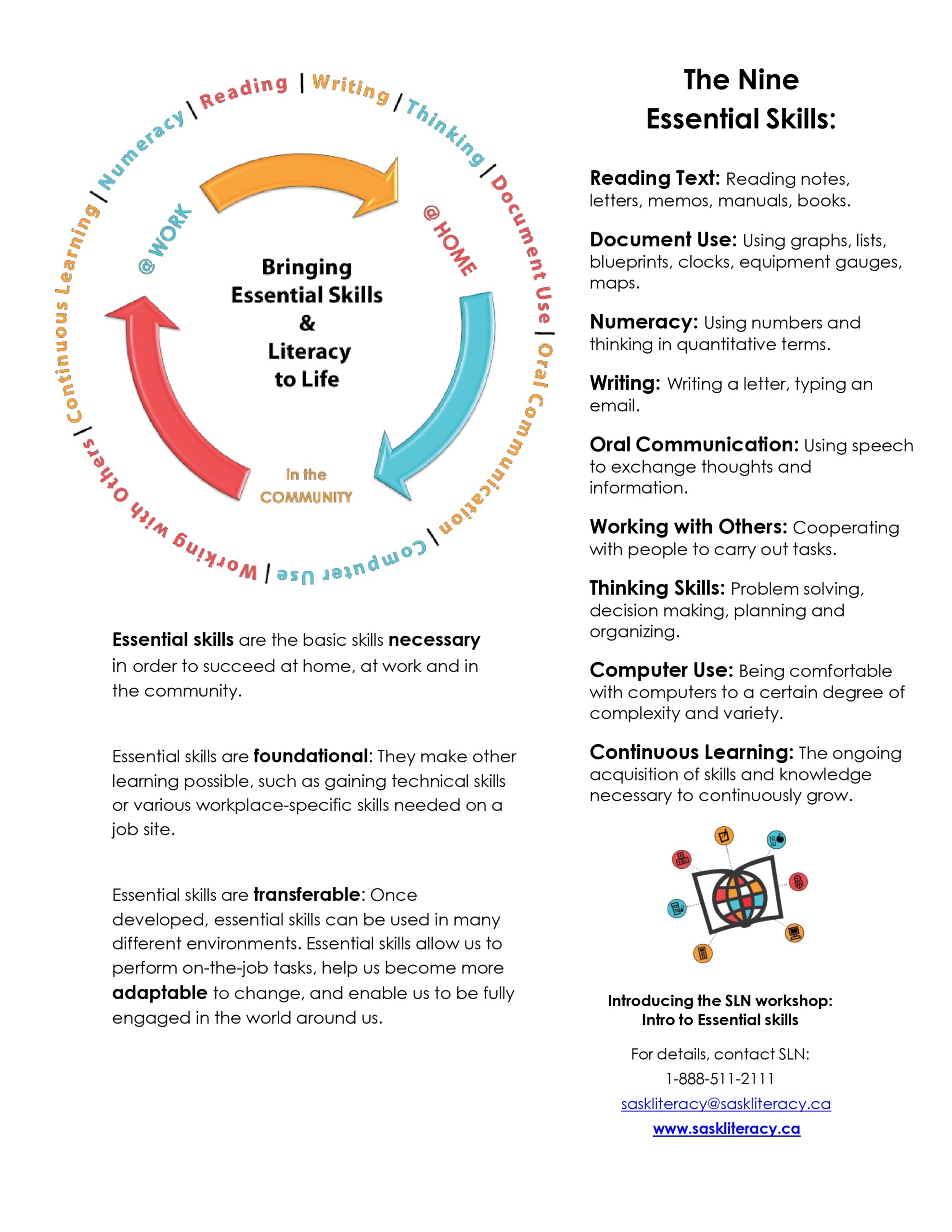- Learn and apply new knowledge or procedures
- Complete work-related and daily tasks
- Participate in training and education
- Adapt to changes in workplaces and communities
These skills support the development of other skills and are used in many situations across different roles and industries.
The Nine Skills for Success
- Adaptability – Adjusting actions and approaches when situations or tasks change
- Collaboration – Working with others to complete shared tasks and meet goals
- Communication – Receiving, understanding, and sharing information in a clear and respectful way
- Creativity and Innovation – Finding new approaches, ideas, or tools to complete tasks or solve problems
- Digital – Using digital tools and devices to find, manage, create, and share information
- Numeracy – Using numbers, data, and measurements to complete tasks or make decisions
- Problem Solving – Identifying issues and finding practical steps to resolve them
- Reading – Understanding and using written, visual, and symbolic information
- Writing – Creating written or digital text to share information, instructions, or ideas
Skills for Success are used in most jobs and activities, with different levels of complexity depending on the task.
Learn more about the Government of Canada’s Skills for Success →
Skills for Success in Saskatchewan Workplaces
When employers provide training in foundational skills, workplaces can become more efficient, productive, and safe. Employees are better prepared to meet expectations and complete tasks accurately.
- Workplace communication becomes more clear and consistent
- Fewer errors and improved attention to safety procedures
- Increased participation in task planning and decision-making
- Greater capacity to learn and apply new tools, technologies, and methods


